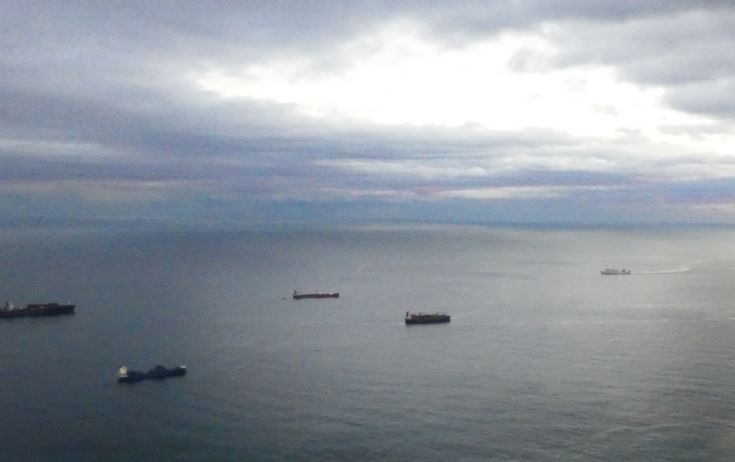Also among the companies is RWE
Englishman North Sea Transition Commission CO has 20 licenses2– Provided storage in UK coastal waters. Carbon dioxide must be stored in offshore oil and gas fields. SThey are located on the coast of Aberdeen and Liverpool, in Teesside, Lancashire and Lincolnshire. Twelve companies have been awarded the contract and can now begin a detailed evaluation of the allotted site.

Clouds over the sea – Photo © Gehard Hofmann, future company, for Solarify
RWE is considering developing three CCS projects in the UK
- CCS projects could generate 4.7 GW and 11 million tons of CO per year in the future.2– Avoid emissions
- Decarbonised gas power stations are an important part of the UK generation mix and ensure security of supply
- RWE is developing solutions to decarbonise its European power plant fleet
Great Britain’s leading power producer RWE announced plans for three new CCS projects on May 23, 2023, through which the company intends to contribute to the decarbonisation of the British electricity supply. CCS stands for Carbon Capture and Storage – the capture and underground storage of carbon. The UK aims to decarbonize the UK electricity sector by 2035.
RWE is investigating the extent to which existing gas-fired power plants in Pembroke, Wales and Stathorpe in the UK can be retrofitted with CCS technology. With an installed capacity of 2.2 gigawatts (GW), Pembroke has been operational since 2012 and the 1.7 GW Staythorpe gas-fired power station has been operational since 2010. In addition, RWE is leading a development project in Great Britain. A new gas-fired power station with carbon capture near the banks of the Humber in Stallingborough, north-east Lincolnshire, England. The planned power plant will have a production capacity of up to 0.8 GW and will be able to power one million homes every year.
Tom Glover, RWE UK Country Head: “Developing green gas power plant projects is essential to decarbonise the power sector and support security of supply, while enabling industrial decarbonisation at scale. CCS technology is a safe, flexible and all-weather power source for renewables by guaranteeing security of supply.” and can support the expansion of other low carbon technologies. I am pleased to announce our plans for three CCS projects in the UK. These represent an important step towards decarbonising our existing gas fleet.”
As the operator of the largest fleet of gas-fired power plants in Great Britain and a leading power producer based on renewable energies, RWE sees CCS technology as a viable solution for decarbonised, reliable and always available power generation. CCS technology contributes to Great Britain’s goal of decarbonising its electricity system by 2035. All three proposed CCS schemes are of great importance to the long-term security of supply in Great Britain. They also contribute to RWE’s goal of becoming climate-neutral by 2040, in line with the Paris Climate Agreement.
If all three projects go ahead, they could generate up to 4.7 GW of flexible, CO.2-Providing free generation capacity – enough to generate electricity to meet the needs of an estimated 8.1 million British households and 11 million tonnes of CO at the same time.2 save per year. These projects will also be a significant investment in the UK energy system.
All the three projects are located near the planned CO2Third parties have access to networks or shipping facilities that allow safe transport and storage of carbon dioxide. RWE has partnerships with industrial clusters South Wales Industrial Cluster (SWIC) And Viking CCS This is built to create transportation and storage options. Options for using captured CO where possible2 should be developed.
In the next phase, an application for three projects for “Track 2 Phase 2” funding will be prepared by the British “Department of Energy Security and Net Zero”. For CCS projects, this is proximity to systems that store or transport CO2 Purpose The key here is to demonstrate that carbon capture is a viable solution and a key contributor to achieving the UK target of net-zero greenhouse gas emissions by 2050.
->Sources:

“Friend of animals everywhere. Web guru. Organizer. Food geek. Amateur tv fanatic. Coffee trailblazer. Alcohol junkie.”





More Stories
Bushfires: Australia calls for tens of thousands to evacuate due to wildfires
Great Britain: Inflation Weakens Slightly | News | Current
How does Samantha Stosser get the Stuttgart Sands to Australia? · tennisnet.com